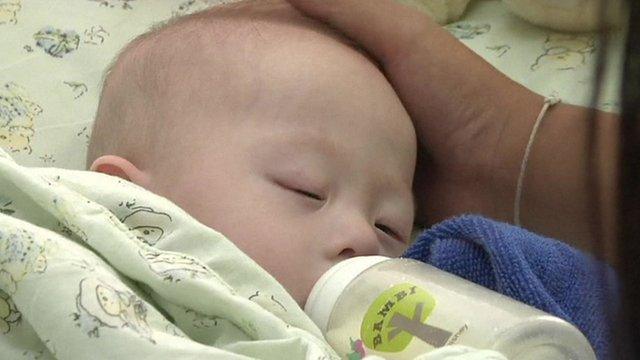Thai surrogate baby Gammy: Australian parents contacted
- Published
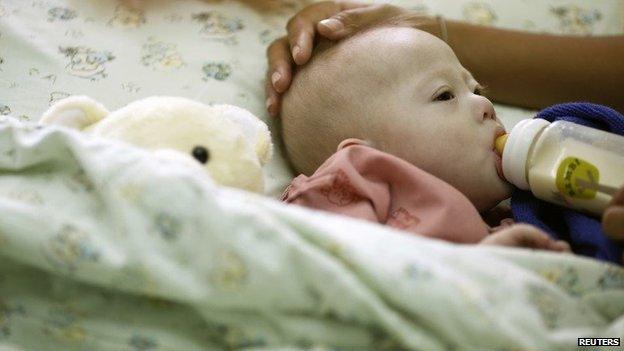
Six-month-old Gammy was born with Down's Syndrome, a congenital heart condition and a lung infection
Australia's child protection services have contacted a couple accused of abandoning a baby with Down's syndrome to his surrogate mother in Thailand.
The surrogate says they deliberately left Gammy behind, but took his healthy twin sister. The couple deny this.
It later emerged that the man had previously been convicted for child sex offences.
Officials say they have now managed to reach the couple, but have no major concerns at present.
The contact follows days of speculation over the couple's whereabouts.
In a separate discovery, nine babies were found in a Bangkok flat, with a lawyer claiming they were all surrogate babies fathered by a Japanese businessman.
'Safety plan'
Child protection officers reached the Australian pair after trying for the past few days.
Western Australia Child Protection Minister Helen Morton told Fairfax Radio on Thursday: "We've had telephone contact with the family and we're in the process of putting other arrangements in place."
The department had no "major" concerns at present, but would consider how to ensure the safety of the baby girl, Gammy's sister, she said.
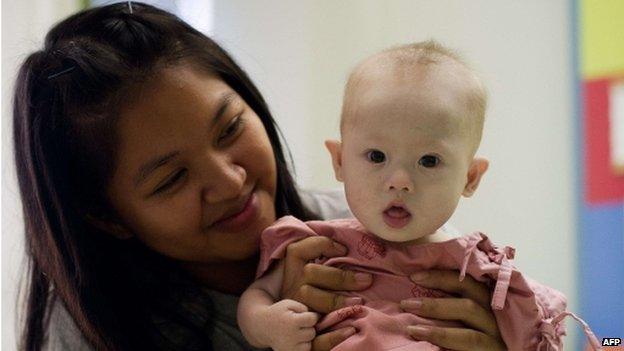
Ms Chanbua was paid by the Australian couple to have their child
She urged the media to give the family "privacy and confidentiality" in the meantime, adding that at this stage there was no evidence of anything illegal about the surrogacy arrangements.
'Good father'
According to court documents, the man was convicted in the 1990s for the sexual assault of several young girls.
However, his adult son, who did not wish to be named, told local media, external that the man was a "good father" who had changed.
"He's just got a massive heart. He's made mistakes, we've accepted it... he's made up for them," he said.
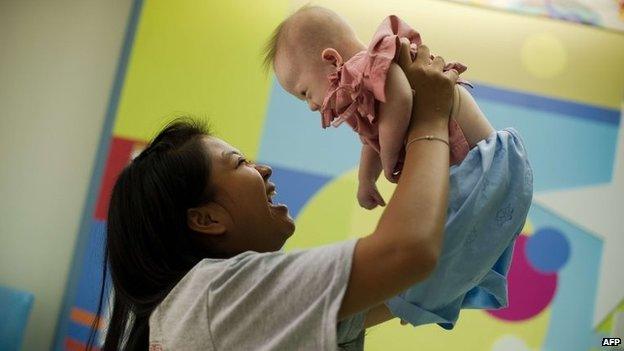
Ms Chanbua says she will look after Gammy
The case of baby Gammy has made international headlines and caused uproar in Australia.
Besides Down's syndrome, the six-month-old has a congenital heart condition and a lung infection.
Surrogate mother Pattharamon Chanbua, who has been looking after Gammy, said the couple had asked her to have an abortion when she was told of the child's condition four months after becoming pregnant.
She said she refused, as it was against her Buddhist beliefs. Abortion on the grounds of foetal impairment is illegal in Thailand, external.
Ms Chanbua, 21, has said the father met the twins, but only took care of the girl.
The parents have told local media in Australia that they did not know of his existence, and claimed that the allegations made by Ms Chanbua are lies.
'Nine babies'
Meanwhile, Thai authorities say they have found six boys and three girls, all aged two or younger, in a condominium in Bangkok.
The children were accompanied by several nannies and a pregnant woman.
A Thai lawyer told police he was representing a Japanese man, who was father to all the surrogate babies, telling the Bangkok Post, external that the surrogacy arrangements were all legal.
Deputy national police chief Aek Angsananont told Reuters news agency: "We are questioning the nannies, as well as asking for co-operation from the Japanese embassy, to help conduct DNA testing.
"If the Japanese man admits that all the children are his babies, we would ask him why he wanted to have so many babies."
Commercial surrogacy is not illegal in Thailand, although the authorities are now seeking to tighten regulations.
Thailand is a popular destination for surrogacy arrangements, along with the US, India, and Russia.
Thailand's medical governing body has recently said that its rules prohibit same-sex couples or single people from engaging a surrogate mother, fees should not be paid, and the surrogate mother must be a blood relative of the intended parents.
- Published6 August 2014
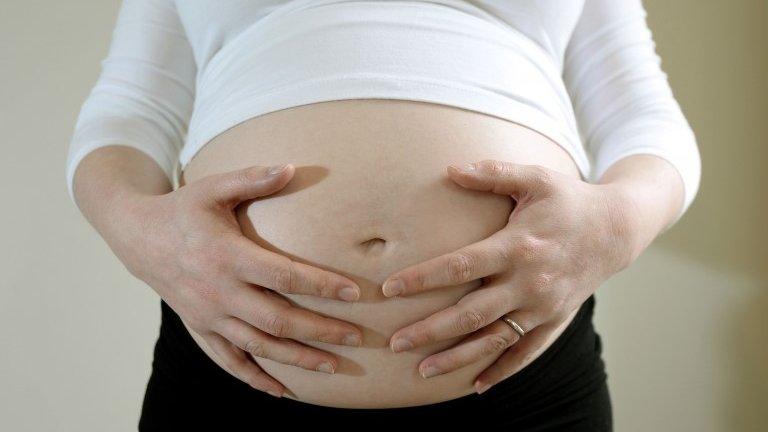
- Published5 August 2014
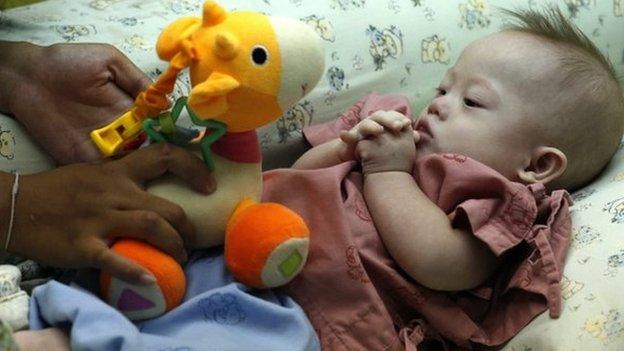
- Published4 August 2014
